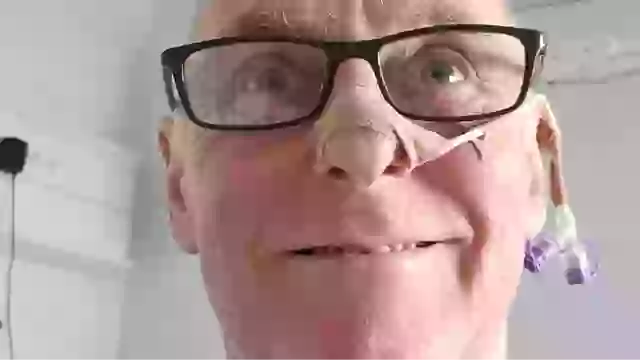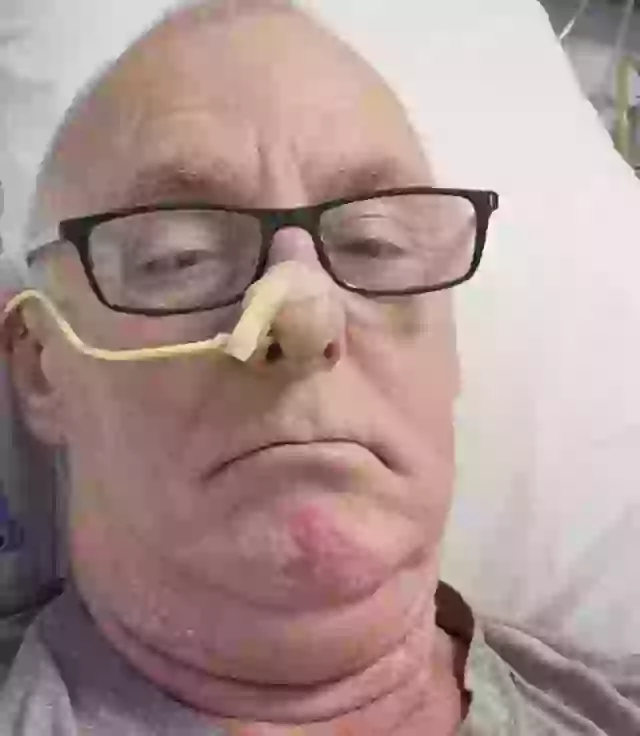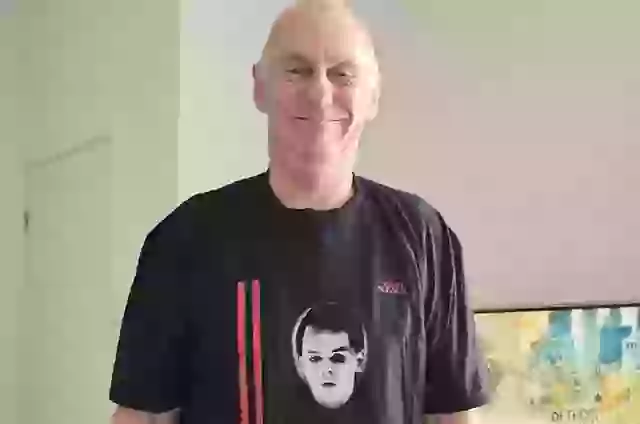Man Shocked to Learn His Throat Cancer Was Tied to a Virus from Oral Sex
Frank Lane had no idea that something so small could signal something so serious.
It was November 2023 when the 60-year-old from Hampshire, England, first noticed a swelling on the right side of his neck while shaving. He felt a firm lump, about the size of a boiled egg, under his skin. At first, he brushed it off, assuming it might be a swollen gland from a recent gym session.
But when the swelling persisted after two weeks, Frank knew he needed to get it checked out.

“I thought it might be something minor,” he recalled. “But when the doctor looked in my mouth, she could see something protruding above the tonsils. That’s when it really hit me.”
Alongside the lump, Frank had been experiencing unusual fatigue and waking up multiple times a night—symptoms he had simply chalked up to aging and a busy lifestyle. However, the reality was far more serious.
A biopsy was quickly arranged, and ten days later, Frank received his diagnosis: throat cancer.
The news stunned him. “When the doctor first told me, I thought he must be mistaken,” Frank said. “I quit smoking ten years ago and have lived a fairly healthy lifestyle since.”
But as the consultation continued, Frank learned something even more surprising—the cancer was caused by a strain of the human papillomavirus, or HPV. This virus, often transmitted through oral sex, had likely been lying dormant in his body for decades.

“When the doctor explained that the cancer came from a virus linked to oral sex, I was completely taken aback,” Frank said. “I’d never heard of anything like that.”
HPV is commonly associated with cervical cancer, but research has shown it can also affect the mouth and throat. When the virus infects the tissues of the oropharynx—an area that includes the base of the tongue and the tonsils—it can cause cellular changes that lead to cancer.
Frank’s colleagues were just as shocked. “Some of the lads at work laughed at first,” he said. “Not because of the cancer—but because of how it came about. When I told them to Google it, their expressions changed completely.”
Doctors believe Frank may have contracted HPV in his early twenties while serving in the British Army. He emphasizes that he wasn’t living recklessly during that time, but he now realizes how long-term the effects of a single infection can be.
“I wasn’t jumping from partner to partner,” he noted. “But all it takes is one encounter.”
Following his diagnosis, Frank underwent an aggressive treatment plan. He started with two rounds of chemotherapy, followed by a six-week course of intensive radiotherapy. Despite his years of military service, Frank described the treatment as the most painful experience of his life.
“The army trained me for all sorts of physical and mental endurance,” he said, “but nothing could have prepared me for the toll of radiotherapy.”
The therapy caused mouth ulcers, severe throat pain, and left him unable to eat solid food for weeks. Still, he endured it—and now, he’s in recovery. Regular follow-up scans show no signs of cancer, and Frank remains under careful observation with check-ups every two months.
Today, he feels grateful—but also compelled to raise awareness.

“Had I ignored the lump or waited longer, the outcome could have been very different,” he said. “That’s why I tell everyone now—if something doesn’t feel right, get it checked.”
Frank acknowledges that the nature of his diagnosis might be uncomfortable for some to discuss. But he insists that the stigma surrounding HPV-related cancers needs to be broken.
“People need to understand that this can happen to anyone,” he said. “It’s not about shame or embarrassment—it’s about health.”
While Frank jokingly suggests that avoiding oral sex altogether might be one way to stay safe, his serious message is clear: don’t ignore early symptoms, and consider getting vaccinated.
The HPV vaccine, initially targeted at young women to prevent cervical cancer, is now recommended for boys and men as well. In many countries, it’s routinely offered to adolescents before they become sexually active, but older adults can also benefit, depending on individual risk.
“I wish I had known more about HPV when I was younger,” Frank admitted. “But now, at least I can talk about it and maybe help someone else catch it early.”
Frank’s experience is a sobering reminder of how silent threats can linger in the body for decades—and why staying informed, vigilant, and proactive about health is more important than ever.
Source:
Kennedy News and Media